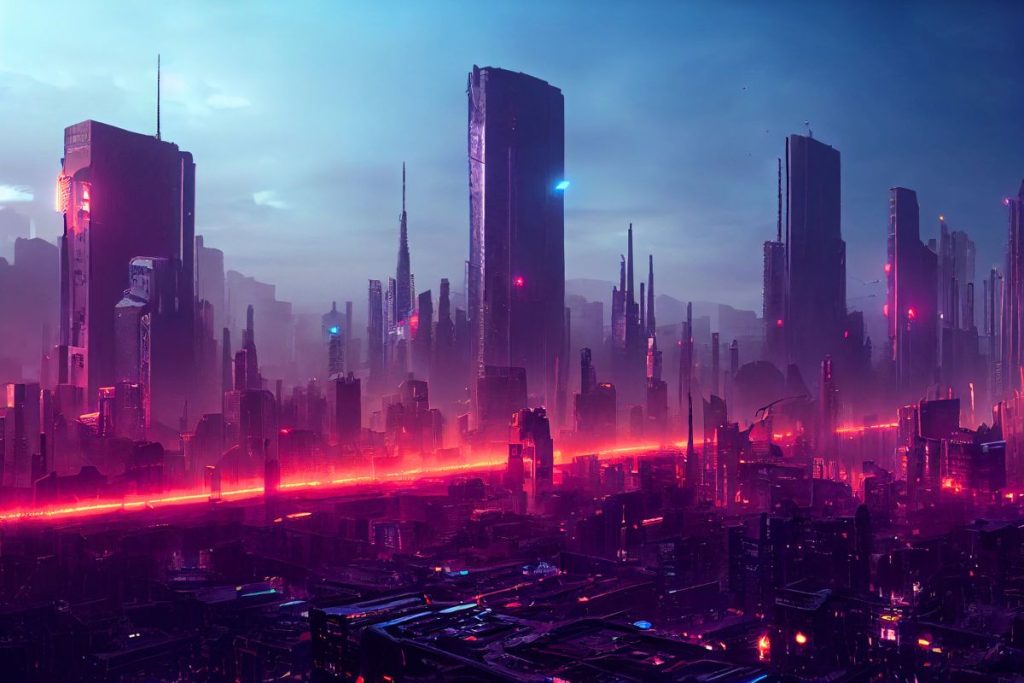When it comes to genres in cinema, two often come up in conversation: horror films and sci-fi films. While horror films take you through fear and the unknown, sci-fi invites you to explore new frontiers, both in terms of technology and human potential. Sci-fi movies have the unique ability to offer not only captivating entertainment but also deep reflections on humanity, progress, and the future. Here’s a list of 20 sci-fi films that should be on every film lover’s bucket list.
The Best Sci-Fi Movies According to Critics
The first list we look at is compiled from sources like IMDb, Rotten Tomatoes, and Metacritic, offering a critical perspective on the best sci-fi films ever made. Here are the top 10 from Business Insider’s ranking, derived from Metacritic’s data.
Metropolis (1927)
A groundbreaking film that takes place in a dystopian future where society is divided between the rich and the poor, exploring themes of class struggle and technological power. A silent and black-and-white film, it set the standard for visual storytelling in sci-fi.
Gravity (2013)
A thrilling space odyssey starring Sandra Bullock and George Clooney, focusing on two astronauts stranded in space. It’s a visually stunning film that also delves into the themes of survival and human resilience.
Wall-E (2008)
An animated classic from Pixar, this film takes us into the future where Earth is abandoned, and a lonely robot named Wall-E cleans up the planet. It’s both heartwarming and thought-provoking, addressing environmental issues and humanity’s future.
Threads (1984)
This British film is a chilling look at the aftermath of a nuclear attack on Sheffield, exploring the devastating effects of war on everyday life.
Werckmeister Harmonies (2000)
A Hungarian film by Béla Tarr that tells the story of a town where a mysterious circus and its enigmatic leader bring chaos. It’s a slow-burn philosophical piece that contrasts the personal and the collective.
E.T. the Extra-Terrestrial (1982)
Steven Spielberg’s iconic film about a boy and his bond with an alien stranded on Earth. This heartwarming tale is one of the most beloved sci-fi films of all time.
Close Encounters of the Third Kind (1977)
Another Spielberg classic, focusing on a group of people who have inexplicable encounters with UFOs. The film tackles themes of communication and curiosity.
Her (2014)
Directed by Spike Jonze, this film follows Theodore, a lonely man who falls in love with his AI operating system. It explores the nature of love, technology, and loneliness.
Solaris (1972)
A slow, meditative sci-fi by Andrei Tarkovsky, about a psychologist sent to a space station orbiting the planet Solaris to investigate mysterious deaths, only to confront deep psychological and philosophical questions.
It’s Such a Beautiful Day (2012)
Don Hertzfeldt’s unique animated film about a man named Bill who struggles to make sense of his life while facing mental illness. A thought-provoking and visually distinct film that plays with perception.
These films, ranging from the silent masterpieces of the 1920s to modern animated classics, showcase the depth and variety of sci-fi cinema.
The Best Sci-Fi Movies According to Experts
In 2014, Time-Out London compiled a list of the greatest sci-fi films, this time consulting over 100 experts, from filmmakers like James Cameron to sci-fi icons like Guillermo del Toro. This list features a mix of visionary classics and experimental films that shaped the genre.
2001: A Space Odyssey (1968)
Stanley Kubrick’s legendary film that’s often considered the blueprint for modern sci-fi. It follows a space crew’s journey to Jupiter, offering profound insights into human evolution and our place in the universe.
Blade Runner (1982)
Ridley Scott’s dystopian classic based on Philip K. Dick’s novel. It asks fundamental questions about humanity, identity, and artificial intelligence, set in a rain-drenched, neon-lit Los Angeles.
Alien (1979)
Sigourney Weaver’s iconic performance as Ellen Ripley in this terrifying film about a deadly alien species aboard a spaceship. A blend of horror and sci-fi that set the stage for an entire franchise.
Close Encounters of the Third Kind (1977)
Spielberg’s tale of human contact with extraterrestrials, exploring the deep desire for communication and understanding between species.
Aliens: The Return (1986)
The sequel to Alien, where Ripley returns to confront a new batch of aliens, this time with a group of marines. It’s a classic action-packed sci-fi thriller that also explores themes of motherhood.
Star Wars: A New Hope (1977)
The beginning of the legendary Star Wars saga, where young Luke Skywalker discovers his destiny and joins the rebellion against the Empire. A landmark film that blended adventure, fantasy, and sci-fi.
Brazil (1985)
Directed by Terry Gilliam, this film presents a dystopian world of bureaucratic nightmare, where one man tries to break free. It’s visually eccentric and philosophically sharp.
Metropolis (1927)
Fritz Lang’s groundbreaking vision of a divided society, where workers toil in the underworld while the elites live in luxury above. Its influence on science fiction is immeasurable.
The Terminator (1984)
James Cameron’s film about a cyborg sent from the future to kill the mother of humanity’s resistance leader. A fast-paced thriller that introduced the world to Arnold Schwarzenegger.
The Empire Strikes Back (1980)
The second installment in the Star Wars saga, where Luke Skywalker faces his greatest challenges, and the dark side of the force looms large. It’s considered by many to be the best of the series.
These expert selections highlight the versatility of the sci-fi genre, from grand space operas to gritty dystopian tales. Whether you’re exploring the deepest corners of space or the darkest recesses of human nature, these films provide an unparalleled look at the possibilities of the future.
Final Thoughts: Sci-Fi’s Timeless Appeal
Sci-fi has always been a genre that pushes boundaries, explores philosophical questions, and imagines futures that are both thrilling and thought-provoking. From early works like Metropolis to the mind-bending experiences of 2001: A Space Odyssey and the timeless Blade Runner, these films have captivated audiences for decades. If you haven’t seen some of these cinematic milestones, now is the perfect time to start exploring the worlds they created.



